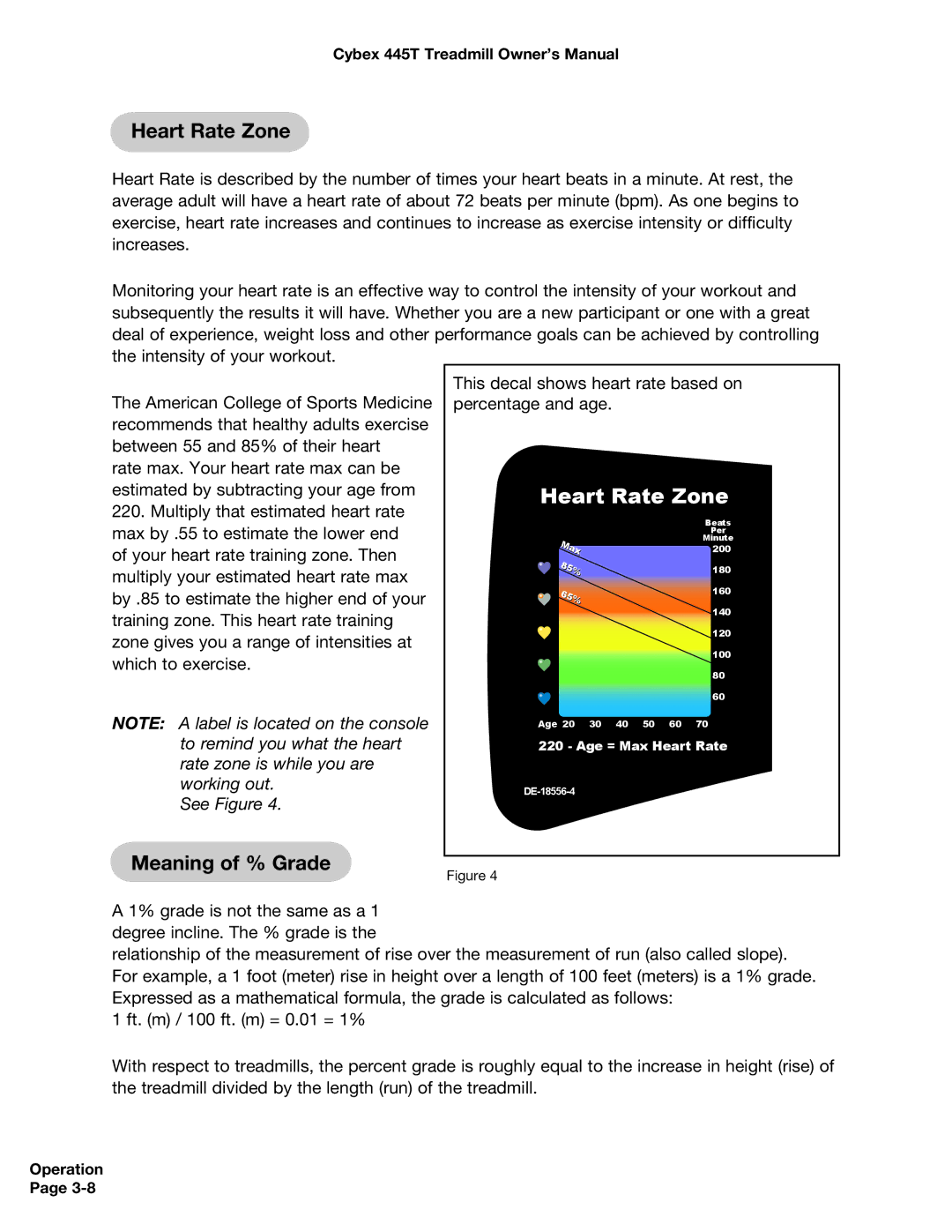
Cybex 445T Treadmill Owner’s Manual
Heart Rate Zone
Heart Rate is described by the number of times your heart beats in a minute. At rest, the average adult will have a heart rate of about 72 beats per minute (bpm). As one begins to exercise, heart rate increases and continues to increase as exercise intensity or difficulty increases.
Monitoring your heart rate is an effective way to control the intensity of your workout and subsequently the results it will have. Whether you are a new participant or one with a great deal of experience, weight loss and other performance goals can be achieved by controlling the intensity of your workout.
The American College of Sports Medicine recommends that healthy adults exercise between 55 and 85% of their heart
rate max. Your heart rate max can be estimated by subtracting your age from
220.Multiply that estimated heart rate max by .55 to estimate the lower end of your heart rate training zone. Then multiply your estimated heart rate max by .85 to estimate the higher end of your training zone. This heart rate training zone gives you a range of intensities at which to exercise.
NOTE: A label is located on the console to remind you what the heart rate zone is while you are working out.
See Figure 4.
Meaning of % Grade
This decal shows heart rate based on percentage and age.
Heart Rate Zone
| Beats | |
| Per | |
Max | Minute | |
200 | ||
85% | 180 | |
65% | 160 | |
140 | ||
| ||
| 120 |
100
80
60
Age 20 30 40 50 60 70
220 - Age = Max Heart Rate
Figure 4
A 1% grade is not the same as a 1 degree incline. The % grade is the
relationship of the measurement of rise over the measurement of run (also called slope). For example, a 1 foot (meter) rise in height over a length of 100 feet (meters) is a 1% grade. Expressed as a mathematical formula, the grade is calculated as follows:
1 ft. (m) / 100 ft. (m) = 0.01 = 1%
With respect to treadmills, the percent grade is roughly equal to the increase in height (rise) of the treadmill divided by the length (run) of the treadmill.
